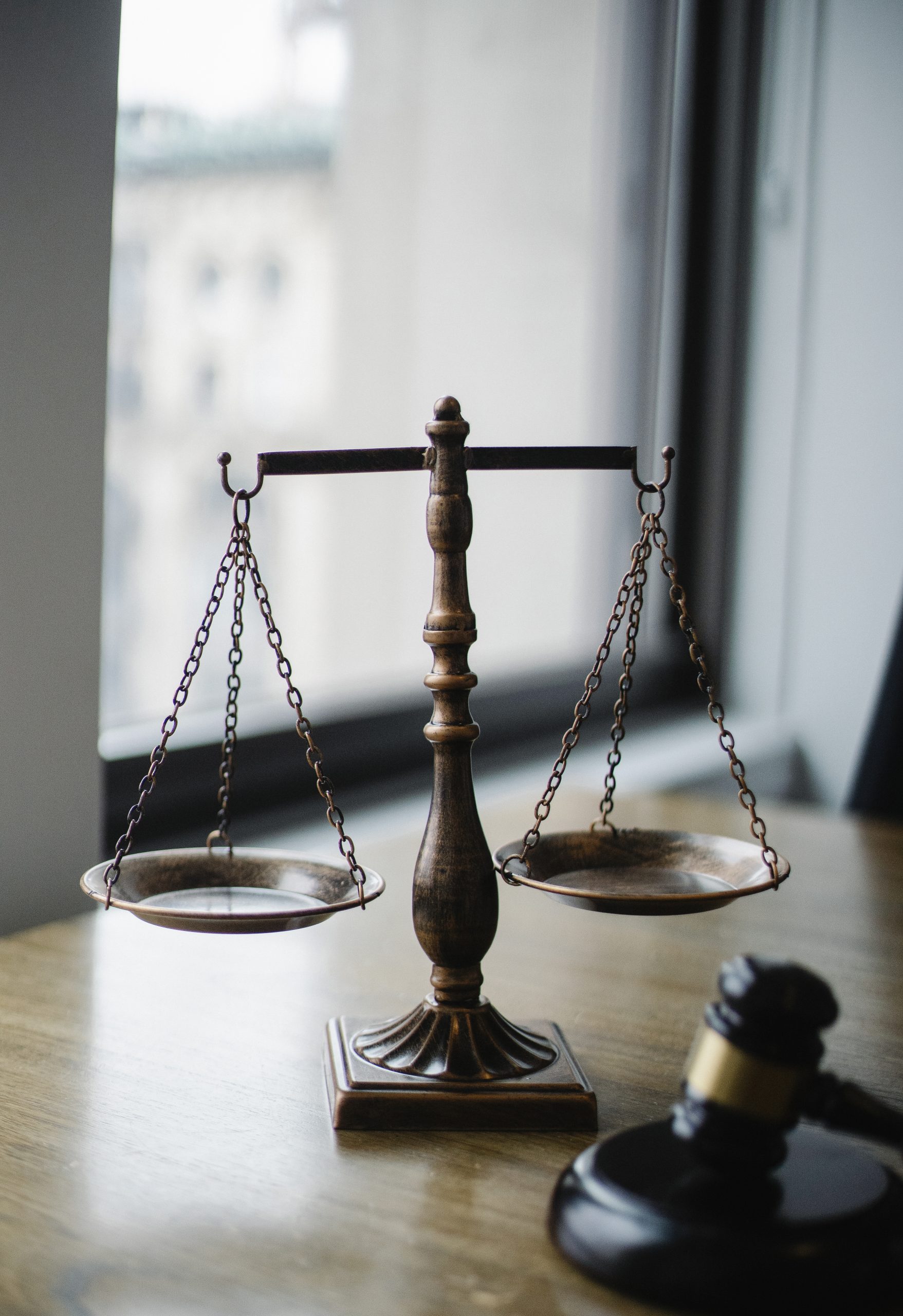As a business owner in Orem, Utah, you understand the importance of protecting your company’s interests. However, the world of criminal defense law can often seem complex and intimidating. That’s where our criminal defense lawyer in Orem, Utah comes in. With their expertise and experience, they can guide you through the legal process, addressing your concerns and providing reassurance. From white-collar crimes to theft and assault charges, our lawyer is well-versed in all areas of criminal defense. By combining their in-depth knowledge of the law with a personalized approach to each case, they can help you navigate the legal system with confidence. So if you’re facing criminal charges, don’t hesitate to give our criminal defense lawyer in Orem, Utah a call for a consultation. Let us protect your business and your future.

Overview of Criminal Defense
Criminal defense is a legal practice area that focuses on representing individuals who are accused of committing a crime. The purpose of criminal defense is to protect the rights of the accused and ensure a fair legal process. It involves defending clients throughout the various stages of criminal proceedings, from arrest and investigation to trial and sentencing.
Importance of Criminal Defense
Criminal defense is crucial as it plays a fundamental role in safeguarding the rights of individuals facing criminal charges. The legal system operates on the principle of “innocent until proven guilty,” and a skilled criminal defense attorney is essential in upholding this principle. Without effective representation, individuals may be subjected to unjust convictions and harsh penalties.
Types of Criminal Charges
Criminal charges can vary widely, ranging from minor misdemeanors to serious felonies. Some common types of criminal charges include:
- Assault and battery: These charges involve physical harm or the threat of violence against another person.
- Drug offenses: Drug possession, trafficking, or distribution charges are common in criminal cases.
- Theft and property crimes: Charges related to theft, burglary, fraud, or embezzlement fall into this category.
- DUI/DWI: Driving under the influence of alcohol or drugs is a common criminal charge.
- White-collar crimes: These offenses involve non-violent financial crimes, such as fraud, insider trading, or money laundering.
The severity of the charges will determine the potential consequences and penalties that an individual may face if convicted.
Choosing a Criminal Defense Attorney
When facing criminal charges, it is crucial to choose the right criminal defense attorney to ensure the best possible outcome for your case. Here are some qualities to look for when selecting an attorney:
Qualities to Look for
- Strong Communication Skills: A criminal defense attorney should possess excellent oral and written communication skills to effectively represent their clients in court.
- Analytical Skills: An attorney with strong analytical skills can assess complex legal situations, evaluate evidence, and develop a strategic defense.
- Attention to Detail: Paying attention to even the smallest details can make a significant difference in a criminal defense case.
- Problem-solving Abilities: Criminal defense attorneys must be able to think critically and identify legal strategies that can challenge the prosecution’s case.
- Empathy and Compassion: An attorney who genuinely cares about their clients’ well-being can provide the support and guidance needed during a criminal case.
Experience and Expertise
Look for a criminal defense attorney who specializes in the specific area of law related to your charges. Experience in handling similar cases will ensure that the attorney is well-versed in the applicable laws, procedures, and defenses. An experienced attorney is also more likely to have established relationships with judges, prosecutors, and law enforcement, which can be advantageous when negotiating your case.
Reputation and Track Record
Research an attorney’s reputation and track record by reading client reviews, testimonials, and case outcomes. A reputable attorney with a proven track record of success will instill confidence and give you peace of mind knowing that you have a skilled advocate on your side.
The Criminal Defense Process
Understanding the various stages of the criminal defense process can help you navigate it effectively. The process typically includes the following steps:
Arrest and Booking
When you are arrested, law enforcement officers take you into custody and bring you to a police station for booking. During booking, your personal information and mugshot are recorded, and you may be fingerprinted.
Bail and Pretrial Release
After being arrested, you may have the opportunity to post bail or be released on your recognizance, depending on the severity of your charges and your risk of flight. Bail allows you to be released from custody while awaiting trial, provided you comply with certain conditions set by the court.
Arraignment and Plea
At the arraignment, you will be formally informed of the charges against you, and you will have the opportunity to enter a plea of guilty, not guilty, or no contest. Your attorney can guide you in making the best decision regarding your plea.
Investigation and Evidence
Once the arraignment is complete, your defense attorney will thoroughly investigate the case, gathering evidence and identifying potential weaknesses in the prosecution’s case. This may involve interviewing witnesses, reviewing police reports, and analyzing forensic evidence.
Defense Strategy
Based on the evidence and circumstances of your case, your attorney will develop a defense strategy. This may involve challenging the validity of evidence, raising doubts about the prosecution’s case, or presenting an alternative explanation for the alleged crime.
Negotiation and Plea Bargaining
In many cases, the prosecution and defense may engage in negotiation and plea bargaining to reach a resolution without going to trial. Your attorney will negotiate on your behalf to secure the best possible outcome, which may include reduced charges or penalties.
Trial and Sentencing
If your case proceeds to trial, your attorney will present your defense in court, challenging the prosecution’s case and advocating for your innocence. If you are found guilty, the court will proceed to sentencing, where the judge will determine the appropriate penalties.
Rights of the Accused
When facing criminal charges, individuals have certain rights that protect them throughout the legal process. These rights are essential to ensure a fair and just trial. Some key rights of the accused include:
Presumption of Innocence
Every person accused of a crime is presumed innocent until proven guilty in a court of law. This presumption places the burden of proof on the prosecution to establish guilt beyond a reasonable doubt.
Right to Legal Counsel
The Sixth Amendment of the United States Constitution guarantees the right to legal counsel. This means that individuals facing criminal charges have the right to an attorney, even if they cannot afford one. A competent defense attorney is crucial in protecting your rights, building a defense, and navigating the complex legal system.
Protection from Self-Incrimination
The Fifth Amendment protects individuals from being compelled to incriminate themselves. This right allows you to remain silent during police questioning and prevents any coerced confessions from being used against you in court.
Due Process
The Due Process Clause of the Fourteenth Amendment ensures that individuals are treated fairly and impartially by the government. It guarantees that you have the right to notice of the charges against you, the opportunity to be heard in court, and protection against any arbitrary or discriminatory actions.

Common Criminal Defense Strategies
Criminal defense attorneys employ various strategies to defend their clients, depending on the specific circumstances of each case. Some common defense strategies include:
Alibi
An alibi defense involves presenting evidence to prove that the accused was not at the scene of the crime when it occurred. Alibi witnesses or surveillance footage can help establish an alibi defense.
Self-Defense
If you acted in self-defense, you may argue that you acted to protect yourself from imminent harm or danger. In such cases, the defense aims to establish that your actions were reasonable under the circumstances.
Insufficient Evidence
The defense may challenge the prosecution’s evidence, arguing that it is insufficient to prove guilt beyond a reasonable doubt. This strategy focuses on raising doubts about the reliability or credibility of the evidence presented.
Mistaken Identity
In cases where the identity of the perpetrator is in question, the defense may argue that the eyewitness testimony or other identification evidence is unreliable. This defense strategy aims to cast doubt on the accuracy of the identification.
Illegal Search and Seizure
If the evidence against you was obtained through an illegal search and seizure, your attorney can move to have that evidence suppressed. This defense strategy is based on the Fourth Amendment protections against unreasonable searches and seizures.
Intoxication
In some cases, the defense may argue that the accused was involuntarily intoxicated or lacked the mental capacity to form the necessary intent to commit the crime.
Penalties for Criminal Charges
The potential penalties for criminal charges depend on the severity of the offense and whether it is classified as a misdemeanor or a felony.
Misdemeanors vs. Felonies
Misdemeanors are less serious offenses and typically carry less severe penalties, such as fines, probation, or short-term imprisonment. Felonies, on the other hand, are more serious offenses and can result in significant prison sentences, hefty fines, and long-term consequences that can impact employment, housing, and other aspects of your life.
Fines and Restitution
Both misdemeanor and felony charges may result in fines. Fines are monetary penalties imposed by the court as punishment for the offense. In addition to fines, restitution may be ordered to compensate victims for any harm or losses suffered due to the crime.
Probation and Parole
In some cases, individuals may be sentenced to probation instead of or in addition to imprisonment. Probation allows the individual to remain in the community under specific conditions, such as regular check-ins with a probation officer, mandatory drug testing, and compliance with any court-ordered treatment or counseling.
Parole, on the other hand, is the release of an individual from prison before completing their full sentence, with certain conditions and supervision.
Imprisonment
For more serious offenses, imprisonment may be a potential consequence. The length of the prison sentence varies depending on factors such as the nature of the offense, the defendant’s criminal history, and the jurisdiction in which the trial takes place.
Collateral Consequences
In addition to the direct penalties imposed by the court, criminal charges can have long-lasting collateral consequences. These consequences may include restrictions on employment opportunities, professional licenses, housing options, immigration status, and the ability to possess firearms.

Why Hire a Criminal Defense Attorney?
Hiring a criminal defense attorney is essential for numerous reasons. Here are some key benefits of hiring a skilled and experienced attorney:
Expert Legal Knowledge
Criminal defense attorneys have a deep understanding of criminal law and the legal process. They can assess the merits of your case, identify potential defenses, and guide you through the complexities of the criminal justice system.
Protecting Your Rights
An attorney can protect your constitutional rights throughout every stage of the criminal proceedings. They can ensure that law enforcement and the prosecution act within the boundaries of the law and do not infringe upon your rights.
Navigating the Legal System
The legal system can be overwhelming and confusing, especially for individuals who are not familiar with its intricacies. An attorney can navigate the system on your behalf, handling all legal procedures, paperwork, and court appearances.
Reducing Penalties and Consequences
A skilled defense attorney can negotiate with prosecutors to potentially reduce charges or penalties. They will advocate for your best interests, striving to secure the most favorable outcome possible for your case.
Case Studies
To illustrate the effectiveness of criminal defense representation, here are a few case studies showcasing successful outcomes for clients:
Successful Defense Against DUI Charges
Our firm recently represented a client who was charged with driving under the influence (DUI). Through a comprehensive defense strategy, including challenging the accuracy of the field sobriety tests, questioning the reliability of the breathalyzer results, and presenting evidence of the client’s satisfactory driving record, we were able to secure a dismissal of the charges. This outcome underscored the importance of a strong defense strategy and effective advocacy.
Acquittal in Assault and Battery Case
In a recent assault and battery case, our client was wrongfully accused of causing harm to another individual during a physical altercation. Our defense team meticulously analyzed the evidence, identified inconsistencies in witness testimonies, and employed a self-defense strategy. As a result, the jury acquitted our client, recognizing the justification for their actions. This case demonstrated the significance of a strong and persuasive defense.
Dismissal of Drug Possession Charges
Our firm successfully represented a client who was facing charges for drug possession. Through an in-depth investigation and careful examination of the evidence, we discovered procedural errors in the police search and seizure. These errors violated our client’s Fourth Amendment rights. Consequently, the court excluded the unlawfully obtained evidence, leading to the dismissal of the charges. This case emphasized the importance of challenging illegal search and seizure tactics.
Frequently Asked Questions
As they consider their options for legal representation, individuals facing criminal charges often have specific questions. Here are some frequently asked questions and brief answers regarding criminal defense:
What should I do if I am arrested?
If you are arrested, it is crucial to remain calm and exercise your right to remain silent. Do not provide any statements or answer any questions without your attorney present. Contact a criminal defense attorney as soon as possible to ensure that your rights are protected.
Can I be convicted without evidence?
No, individuals cannot be convicted without sufficient evidence. The prosecution bears the burden of proving guilt beyond a reasonable doubt. If the evidence is weak or insufficient, a skilled defense attorney can challenge its credibility and cast doubt on the prosecution’s case.
What are the benefits of hiring a criminal defense attorney?
Hiring a criminal defense attorney provides numerous benefits, including expert legal knowledge, protection of your rights, guidance through the legal process, and efforts to reduce charges and penalties. An attorney can also negotiate with the prosecution on your behalf and build a strong defense strategy tailored to your case.
What are the potential penalties for drug possession?
The penalties for drug possession vary depending on factors such as the type and quantity of the drug, prior convictions, and state laws. They can range from probation and fines to imprisonment. A skilled criminal defense attorney can help you understand the potential consequences specific to your case.
How long does the criminal defense process usually take?
The duration of the criminal defense process varies depending on various factors, such as the complexity of the case, the court’s schedule, and plea negotiations. Some cases may be resolved quickly through negotiation or dismissal, while others may proceed to trial, which can extend the timeline.
Conclusion
When facing criminal charges, it is essential to understand the importance of criminal defense and the crucial role a skilled attorney plays in protecting your rights and securing your best possible outcome. By choosing an attorney with the necessary qualities, experience, and expertise, you can navigate the complex criminal defense process with confidence. Remember, time is of the essence, so take action today to protect your rights and call our criminal defense attorney for a consultation.



